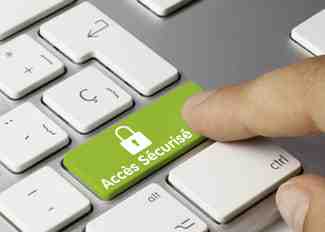Latest update on July 8, 2014 at 11:15 AM by deri58 .

In some situations, a professional may have to move abroad with a laptop or tablet belonging to the company. There are various applications to access the company's data remotely, but the use of such tools may pose some security issues.
To prevent data theft and protect the confidentiality of the company, some good practices must be observed!
Depending on the mobile device used, you will gain access to specific data (professional emails, calendar, company projects ....). Laptops, tablets or smartphones, each of these devices has its own advantages and disadvantages. Before choosing a device you will need to take into account the conditions for the business trip, define your needs abroad and inform yourself about working conditions on the site.
Smartphone : access your emails, shared documents, applications, cloud storage services, video conferencing (Skype...) and messaging.
: access your emails, shared documents, applications, cloud storage services, video conferencing (Skype...) and messaging. Tablet : same features as a smartphone, but with a greater visual comfort.
: same features as a smartphone, but with a greater visual comfort. Laptop: access to all communication and collaboration tools.
Verify the proper operation of the devices prior to your trip. Check the connections and batteries. In some countries (UK, US or Australia), a special plug adapter will be necessary to recharge your electronic devices. As for smartphones and tablets, they can be recharged from a PC using a USB cable.
There are several collaborative solutions to work remotely. It is advisable to install and test them before making your trip abroad. Select applications that can be easily used by employees and collaborators. This is the case of Skype, a video conferencing tool that can be used from a computer, tablet or smartphone.
Smartphones and tablets are prone to hacking attempts. They are usually less protected than laptops, but still they may contain sensitive data.
Some good practices can prevent malicious intrusions.
Opt for secure Wi-fi connections.
Protect your device with a secure password.
Avoid downloading apps from unknown sources.
Be wary of phishing attacks via SMS.
The data stored on mobile devices can also be encrypted. Solutions exist for iOS, Android, Windows Phone and Blackberry.
When connected to a Wi-Fi network, a mobile device is prone to attacks. It is therefore essential to secure your Wi-Fi connections, especially when the device contains sensitive or confidential data. If you are using a laptop or computer, don't forget to enable the firewall. Firewalls can prevent intrusion attempts.
Verify the authenticity and reliability of the wireless connections.
Block the possibility of a "client to client" connections
Avoid connection to unprotected Wi-fi hotspots (restaurant or airport)
If you are using a tablet or smartphone, disconnect the WiFi/Bluetooth connectivity of the device when not required.
To protect the company's sensitive or confidential data when travelling abroad:
Lock the access to your mobile device with a password.
Install a software allowing you to locate (lock remotely, erase data) the device in case of theft or loss.
Disable the network discovery and file sharing features of your laptop.
Turn off Bluetooth and WiFi when not in use.
It is also possible to encrypt data transmitted by a computer using a VPN.
Cloud services allows you to easily access the company's data. Choose a cloud solutions with enhanced security features
Authentication code sent to a mobile number.
Encrypted data synchronization (upload and download).
Photo ©Fotolia